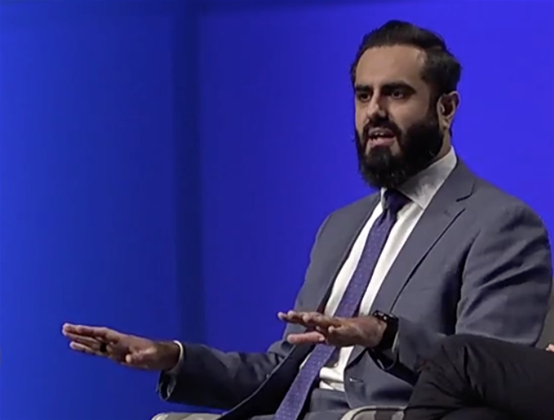The Australian Taxation Office sees a role for generative AI in its operations, albeit one that deals only in “low risk, low complexity use cases” for the foreseeable future.

Speaking at an IBM Think on Tour event in Sydney at the end of last month, assistant commissioner of enterprise data and analytics Fawad Abro declared that generative AI “is definitely going to have a role to play in our organisation, but we are pretty clear on what that role is going to be.”
While the ATO had established uses for what Abro called “enterprise AI”, models that were the “domain of the technical experts” in the agency, generative AI is public domain and needed to be treated very differently.
Abro said that broad-scale experimentation with the likes of ChatGPT meant the ATO “can’t stick [its] head in the sand” around the advent and evolution of generative AI tools.
But he said the focus had to be on “really putting the right guardrails in place to ensure that the ethical use of these tools is implemented”.
One of the initial guardrails is that taxpayer data does not go anywhere near generative AI.
“We’ve got to be really careful with what we do, especially considering some of the things that have happened in Australia,” Abro said.
“We’ve got to be ultra careful, ‘treat [our data] like uranium’, and ensure we’ve got those ethical principles in place.
“Decisions and unlocking value is at the heart of what we do, but it has to be balanced and you have to consider the cost, the value and the risk when it comes to these tools.”
The uranium reference comes from a speech last year by ATO second commissioner Jeremy Hirschhorn, and it appears to have become a defining tenet governing the agency’s handling and use of data.
“Someone recently described to me that data is not gold it’s uranium: before you get it you better know how you’re going to use and store it and there needs to be very good reasons to take the risk,” Hirschhorn said.
It was Hirschhorn, about a half-a-year later in April of this year, that also briefly dealt with what he saw as the risks of ChatGPT being engaged when seeking advice about tax-related matters, though this concern was more about usage by taxpayers, not by the ATO itself.
On specific ATO uses cases for generative AI, Abro said he was “most passionate about … making things really easy and fast for my team” - with a clear implication that the likes of ChatGPT may assist in this area.
“We’re leading one of the largest transformation programs in the Southern Hemisphere when it comes to data and analytics, so how can we write code faster? How do we co-pilot?” he said.
“We’re thinking about low risk, low complexity use cases - write a position description, run a recruitment, do away with all of those hoops.”
The ATO’s position is broadly consistent with interim guidance released by the Digital Transformation Agency (DTA) early last month.
There is still no definitive whole-of-government guidance on enabling experimentation and use, with individual agencies responsible for setting their own direction, guidance and restrictions.
Abro indicated that AI generally played an important role in ATO operations, assisting with performing discovery on leaked international tax datasets and on specific investigations such as the recent Operation Protego: use cases that have been publicised of late.
However, he also said that he was most interested in the result, and less with what kind of technology is used to achieve it.
“As the head of our data platforms, I hate talking about technology. It’s the last thing I want to talk about,” he said.
“There’s always, in every organisation, the ‘hype actors’ is what I call them - ‘Gen AI, let’s do this thing!’ Calm down. Let’s have a more considered conversation about these things. That’s the perspective I try and bring.
“Don’t talk to me about technology. Talk to me about the business value, the risk, the cost, what do we want to do, why do we want to do it, and then we can have a conversation.”



.jpg&h=140&w=231&c=1&s=0)
_page-0001_(1).jpg&w=100&c=1&s=0)
 Integrate
Integrate






.jpeg&h=271&w=480&c=1&s=1)









